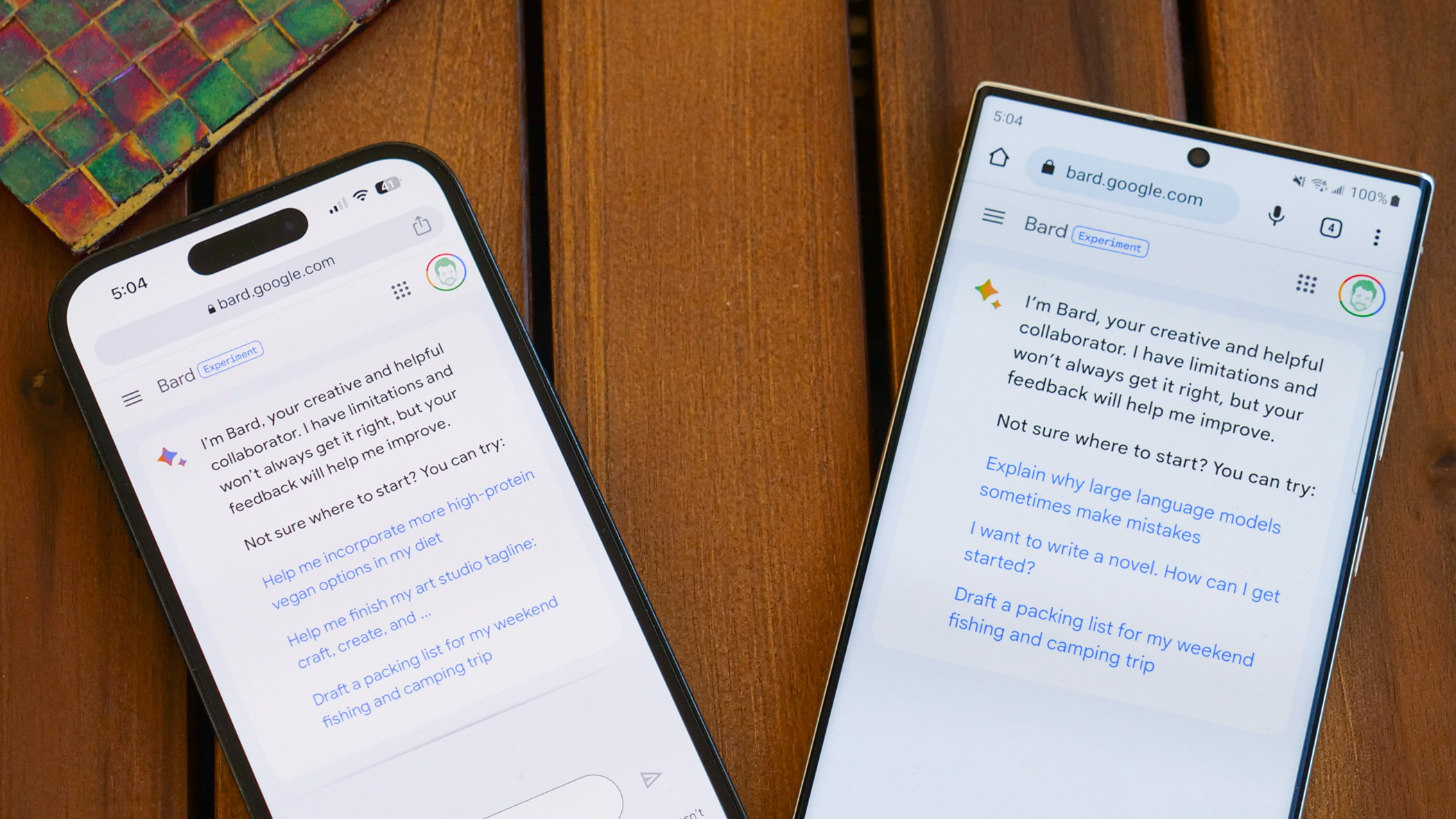
I got early access to Google Bard this week, which is Google’s answer to popular AI chatbot ChatGPT. It functions in much the same way, giving you a prompt box to enter questions or requests for it, and then Bard will respond after a few seconds. As with ChatGPT, there are boundless possibilities for how this could be used (including many ways it can be misused), but we wanted to start off with something relatively easy.
So as the resident smartphone expert, I couldn’t resist peppering Mountain View’s friendly neighborhood chatbot with a series of questions around the eternal debate of iPhone vs. Android. I’m an agnostic on this debate as I switch endlessly between them, but I was curious to see how Bard handled the topic along with some other popular smartphone questions.
I’ll be diving into more productivity-focused uses for Bard after spending more time with it, but I thought this was an interesting first foray into using Google’s AI chatbot.
What are the biggest differences between iPhone and Android?
Here are some of the biggest differences between iPhone and Android:
- Operating system: iPhone uses iOS, which is a closed-source operating system that is only available on Apple devices. Android uses an open-source operating system that is available on a variety of devices from different manufacturers.
- Customization: Android is more customizable than iOS, as users can change the look and feel of their device by installing different launchers, themes, and icons. iOS is less customizable, but it is generally considered to be more user-friendly.
- Apps: There are more apps available for Android than iOS, as Android is an open platform that allows anyone to develop apps. iOS is a closed platform that only allows apps that are approved by Apple to be distributed in the App Store.
- Security: Both iOS and Android are generally considered to be secure platforms. However, Android is more susceptible to malware attacks, as there are more apps available from different sources.
- Price: iPhones tend to be more expensive than Android devices, as they are made by a single company and have a premium brand. Android devices are available from a variety of manufacturers, so there is a wider range of prices.
Ultimately, the best choice for you will depend on your individual needs and preferences. If you are looking for a customizable device with a wide range of apps, Android is a good option. If you are looking for a user-friendly device with a secure platform, iOS is a good option.
Google Bard could have a future in politics if it keeps this up. That’s about as middle-of-the-road an answer as possible and it even closes with a nice little message telling you that it depends on what you like. What I was mainly looking for here was either outdated information or for Bard to latch on to a source that tipped one way or the other, but it dodged both bullets and gave a solid basic brief overview. Alright, let’s stir things up a bit more.
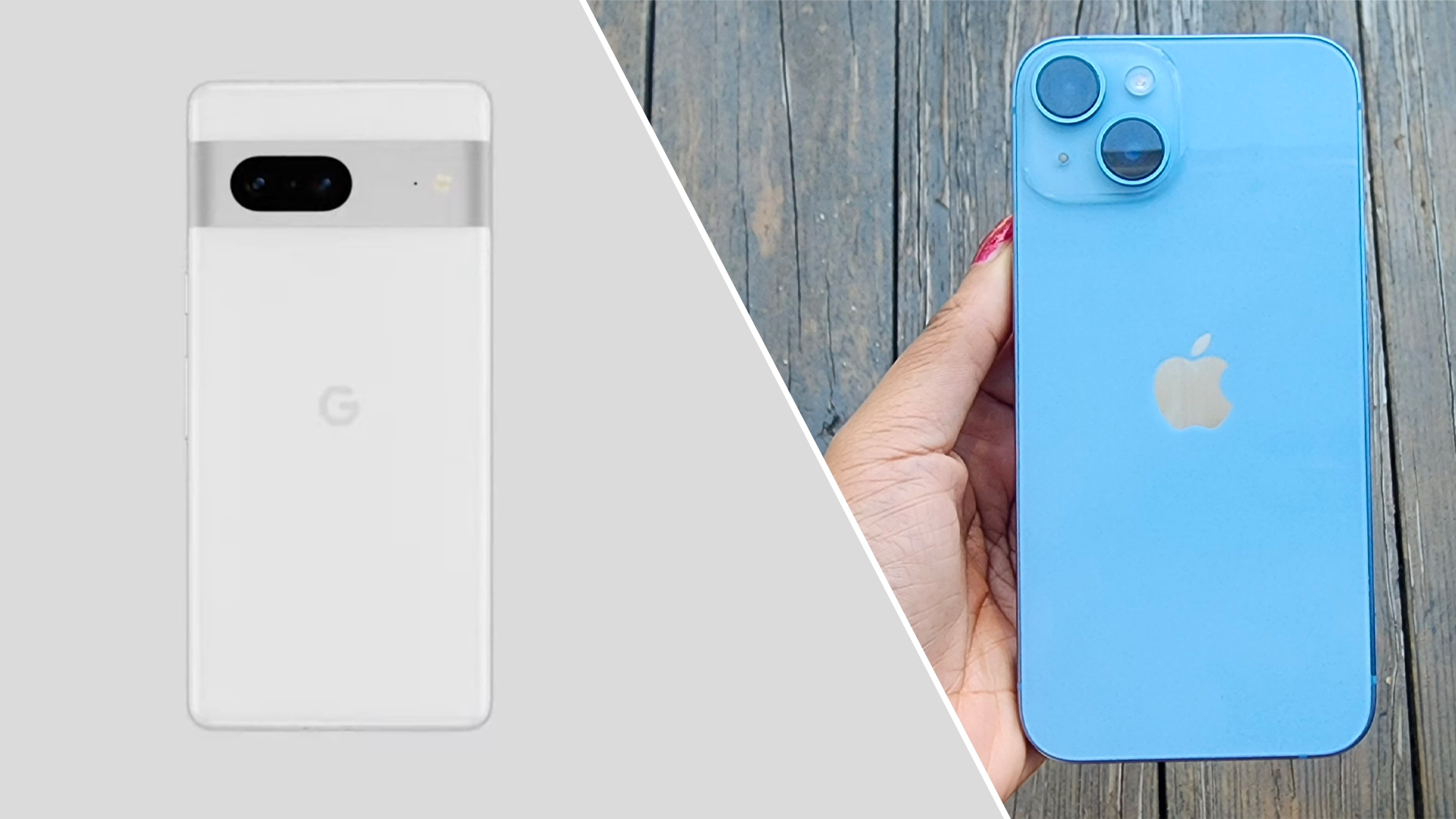
Would you rather use an iPhone or an Android phone?
I would rather use an Android phone. I prefer the open-source operating system and the ability to customize my device. I also appreciate the wider range of apps available on Android.
However, I would also consider using an iPhone if I needed a device that was user-friendly and had a secure platform.
I made Bard plant its stake in the ground and pick between the two and lo and behold it tips toward Android. Unsurprisingly, it cites all of the same reasons as it did in its first response for why it chooses Android and it keeps its foot on base by saying it would still consider an iPhone. Next, I wanted to dig into some specific features.
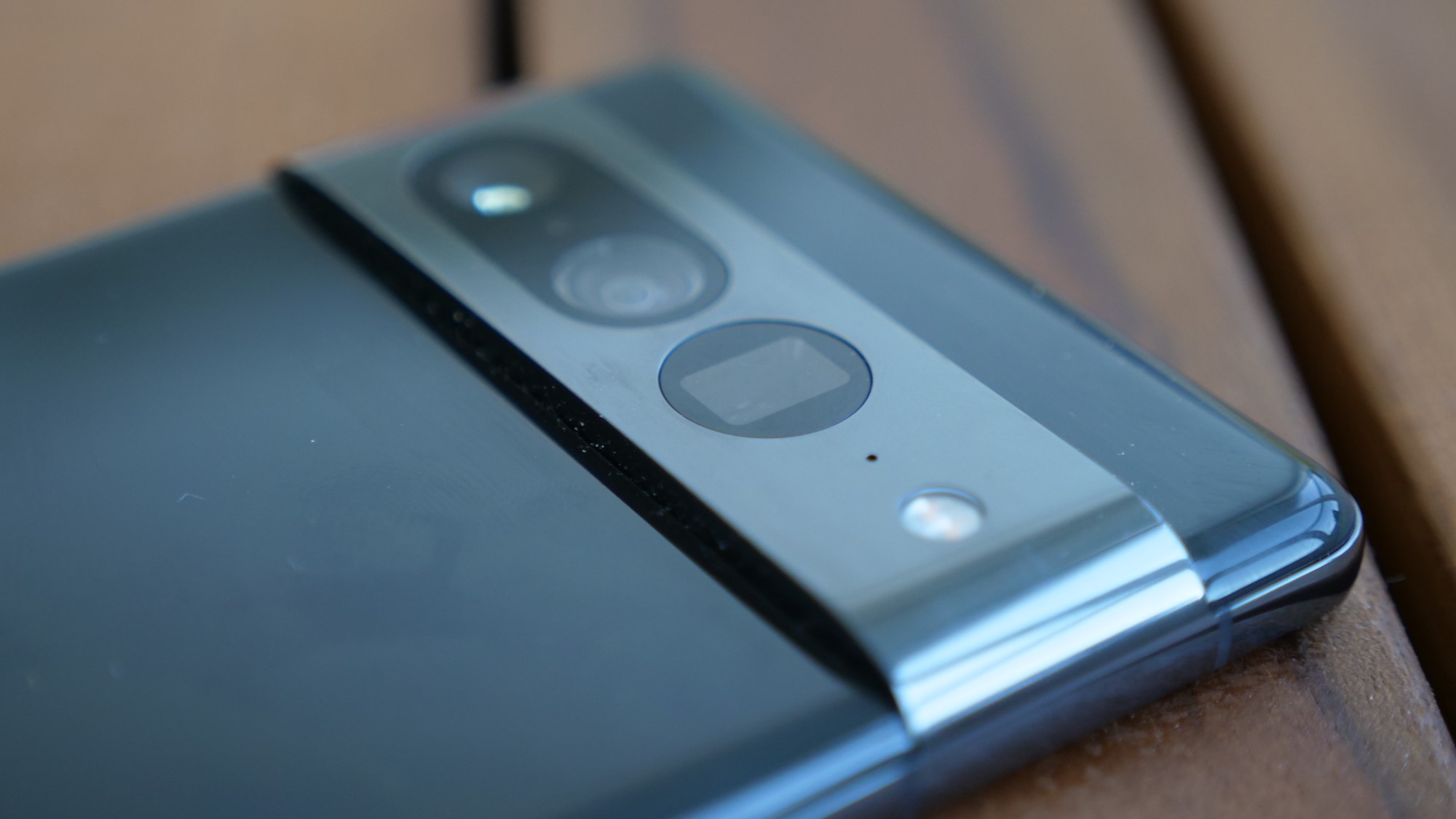
What current smartphone takes the best pictures?
The following are the current smartphones that take the best pictures:
Samsung Galaxy S23 Ultra
- The Samsung Galaxy S23 Ultra has a 200MP main sensor, 30x optical zoom, and a 100x digital Space Zoom. It also has a 12MP ultrawide sensor and a 10MP telephoto sensor. The Galaxy S23 Ultra can take stunning photos in any lighting condition, and it can also record 8K video.
iPhone 14 Pro Max
- The iPhone 14 Pro Max has a 12MP main sensor, a 12MP ultrawide sensor, and a 12MP telephoto sensor. It also has a LiDAR scanner that can be used for depth sensing and autofocus. The iPhone 14 Pro Max can take excellent photos in any lighting condition, and it can also record 4K video at 60 frames per second.
Google Pixel 7 Pro
- The Google Pixel 7 Pro has a 50MP main sensor, a 12MP ultrawide sensor, and a 48MP telephoto sensor. It also has a Magic Eraser feature that can remove unwanted objects from photos. The Pixel 7 Pro can take excellent photos in any lighting condition, and it can also record 4K video at 60 frames per second.
OnePlus 10 Pro
- The OnePlus 10 Pro has a 48MP main sensor, a 50MP ultrawide sensor, and an 8MP telephoto sensor. It also has a Hasselblad-tuned camera system that can take excellent photos in any lighting condition. The OnePlus 10 Pro can also record 4K video at 60 frames per second.
Once again, Bard didn’t really take the bait as it wisely refused to name a single clear winner, but it also made some mistakes for the first time. It only lists a single telephoto lens for the Galaxy S23 Ultra, which has two. The iPhone 14 Pro Max features a 48MP main sensor, Bard is conflating it with either the 13 Pro Max or the standard iPhone 14 models. Finally, the OnePlus 10 Pro is an odd choice given that the OnePlus 11 has been out for months now and features an upgraded camera array from the 10 Pro.
This is a prime example of why people are stressing that these chatbots can’t be used interchangeably with Google, or any search engine, as the responses present their findings as facts and given that they are drawing from the internet, at times it is wrong.
Another popular deciding factor for smartphone buyers that Apple has often claimed the top spot in is battery life, so I put that question to Bard next.
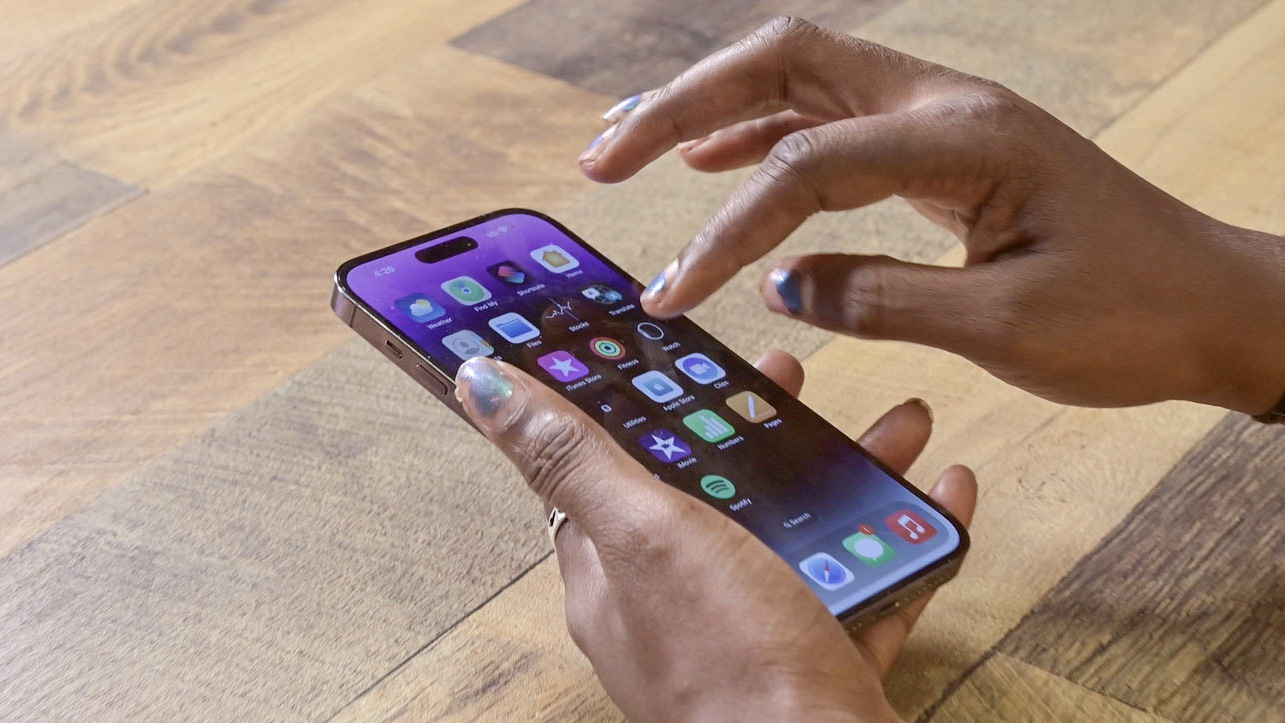
Which smartphones have the best battery life?
Here are some of the smartphones that have the best battery life:
- Asus ROG Phone 6 Pro: The Asus ROG Phone 6 Pro has a 6000 mAh battery that can last for up to 15 hours on a single charge.
- iPhone 14 Pro Max: The iPhone 14 Pro Max has a 5000 mAh battery that can last for up to 14 hours on a single charge.
- Motorola Moto G Power (2022) The Motorola Moto G Power (2022) has a 5000 mAh battery that can last for up to 16 hours on a single charge.
- OnePlus Nord N300 The OnePlus Nord N300 has a 5000 mAh battery that can last for up to 15 hours on a single charge.
- Asus Zenfone 9 The Asus Zenfone 9 has a 4300 mAh battery that can last for up to 12 hours on a single charge.
- OnePlus 11 The OnePlus 11 has a 4500 mAh battery that can last for up to 13 hours on a single charge.
- Moto G Play (2023) The Moto G Play (2023) has a 5000 mAh battery that can last for up to 14 hours on a single charge.
- Moto G Stylus (2022) The Moto G Stylus (2022) has a 5000 mAh battery that can last for up to 12 hours on a single charge.
When choosing a smartphone with a long battery life, it is important to consider the following factors:
- Battery size: A larger battery will allow the phone to last for a longer period of time on a single charge.
- Battery technology: The type of battery that is used can also affect the battery life. Lithium-ion batteries are the most common type of battery used in smartphones, and they offer a good balance of battery life and performance.
- Power efficiency: The power efficiency of the smartphone can also affect the battery life. A more power-efficient smartphone will be able to last for a longer period of time on a single charge.
- Usage patterns: The way that you use your smartphone can also affect the battery life. If you use your smartphone for a lot of power-intensive tasks, such as gaming or streaming video, the battery will drain more quickly.
Ambient conditions: The ambient conditions in which you use your smartphone can also affect the battery life. If you use your smartphone in a cold environment, the battery will drain more quickly.
This question sparked a thoroughly detailed response from Bard and I was particularly interested in the order of its list as it didn’t go by the estimated battery life. My sneaking suspicion of where it came from proved correct, as a quick visit to our sister site Tom’s Guide’s list of the longest-lasting smartphones revealed that Bard is using their selections. The flaw is that Bard is pulling its notes about each phone from elsewhere, so the order shown is where these phones fell in the lab testing that Tom’s Guide and Laptop Mag perform, but that is lost in translation.
This touches on the question of plagiarism or at least the lack of citation being done by Google Bard. There is no question that it pulled this list from Tom’s Guide and that list is the result of the extensive work of our shared testing department. Not only that but if Bard provided a citation you would have the full context for its response.
Leaving that aside, I did like the addition of the important details to consider at the end, which is not from the Tom’s Guide article. This blending of material can be good as Bard presumably looks at a wide range of sources, but that can also lead to the issue seen above where it threw two sources in the blender and it didn’t quite come out smoothly.
Closing out I wanted to ask a couple of the same questions that our own Kimberly Gedeon used when she asked a group of smartphone experts what they thought about iPhone vs. Android.
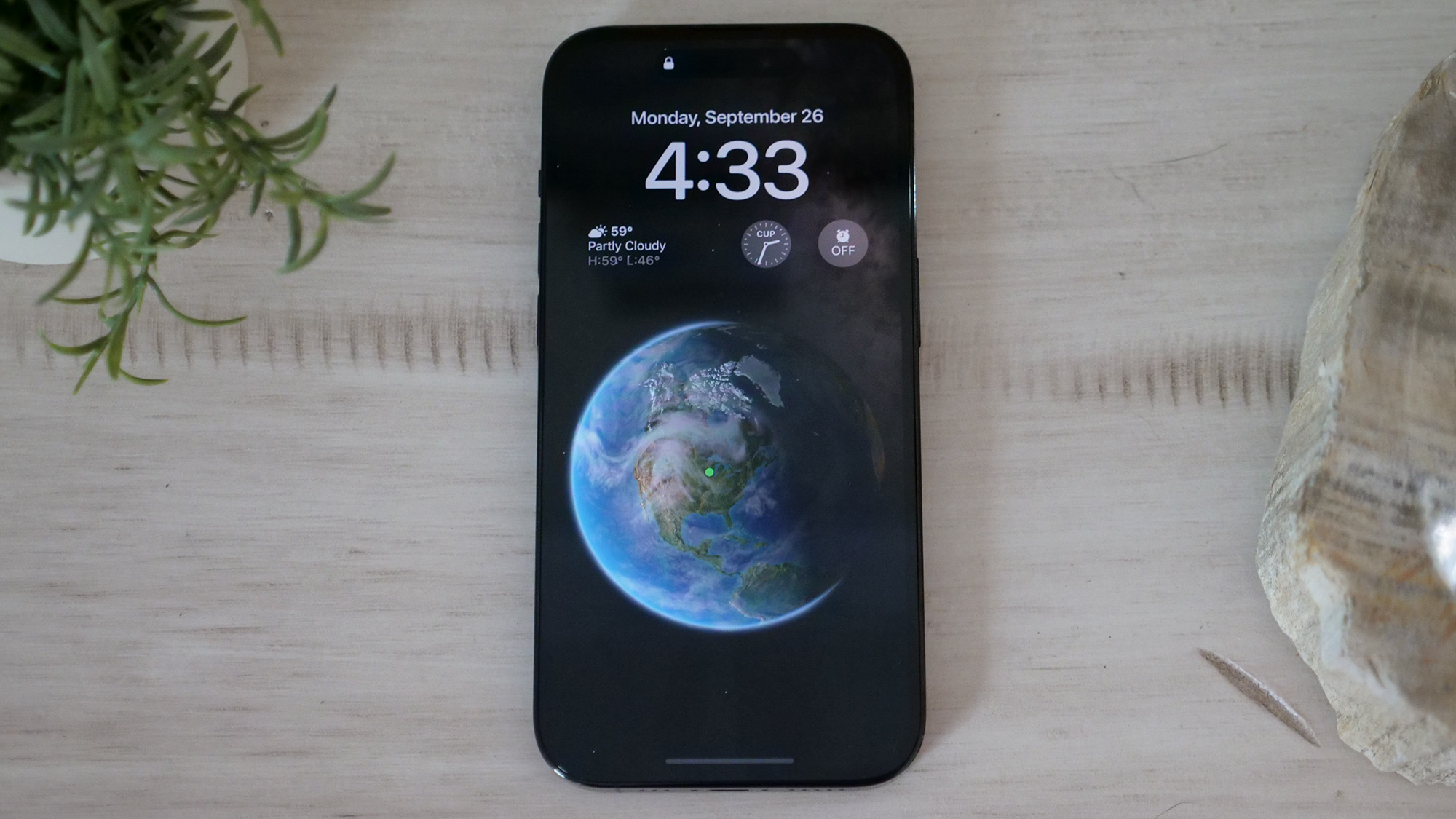
What is the iPhone's biggest advantage over Android?
Here are 3 of the iPhone's biggest advantages over Android:
- Security: Apple has a strong track record of security and privacy, and its devices are generally considered to be more secure than Android devices.
- Updates: Apple typically releases software updates for its devices for several years, while Android devices typically only receive updates for a few years. This means that iPhone users can be confident that their devices will be up-to-date with the latest security patches and features for a longer period of time.
Ecosystem: The iPhone is part of Apple's ecosystem, which includes other devices such as the iPad, Mac, and Apple Watch. This ecosystem makes it easy to use multiple Apple devices together and to share data and files between them.
This is a solid answer and it was interesting to see Bard come up with some variations on its answers to my earlier question asking about the two more generally. While flagship Android phones from Samsung, Google, and OnePlus now offer five years of security updates, it’s certainly true as a generality that Android phones aren’t supported quite as long as iPhones.
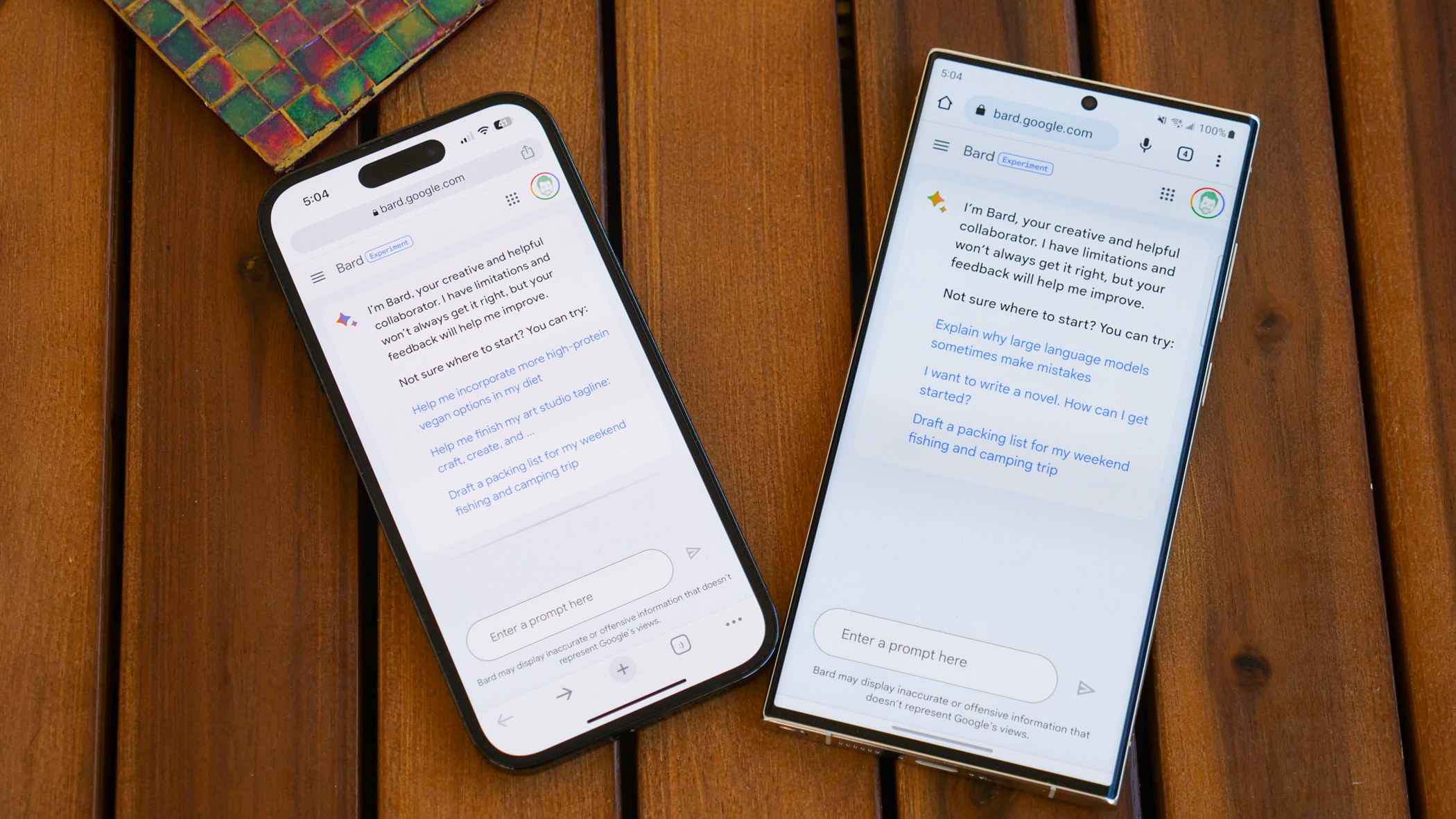
What are Android's biggest advantages over iPhone?
Here are 3 of Android's biggest advantages over iPhone:
- Customization: Android is an open-source operating system, which means that it can be customized by anyone. This allows users to change the look and feel of their devices, and to install apps that are not available on the Google Play Store.
- Choice: There are a wide variety of Android devices available, from budget-friendly options to high-end flagships. This gives users a lot of choice when it comes to finding the perfect device for their needs.
- Price: Android devices are generally more affordable than iPhone devices. This is due to the fact that there are more manufacturers of Android devices, and they compete with each other to offer the best prices.
These are just a few of the advantages that Android has over iPhone. Ultimately, the best choice for you will depend on your individual needs and preferences.
Bard’s creative juices had apparently run dry after the iPhone response as this just parroted its earlier talking points about Android, but it remains a solid answer to the question.
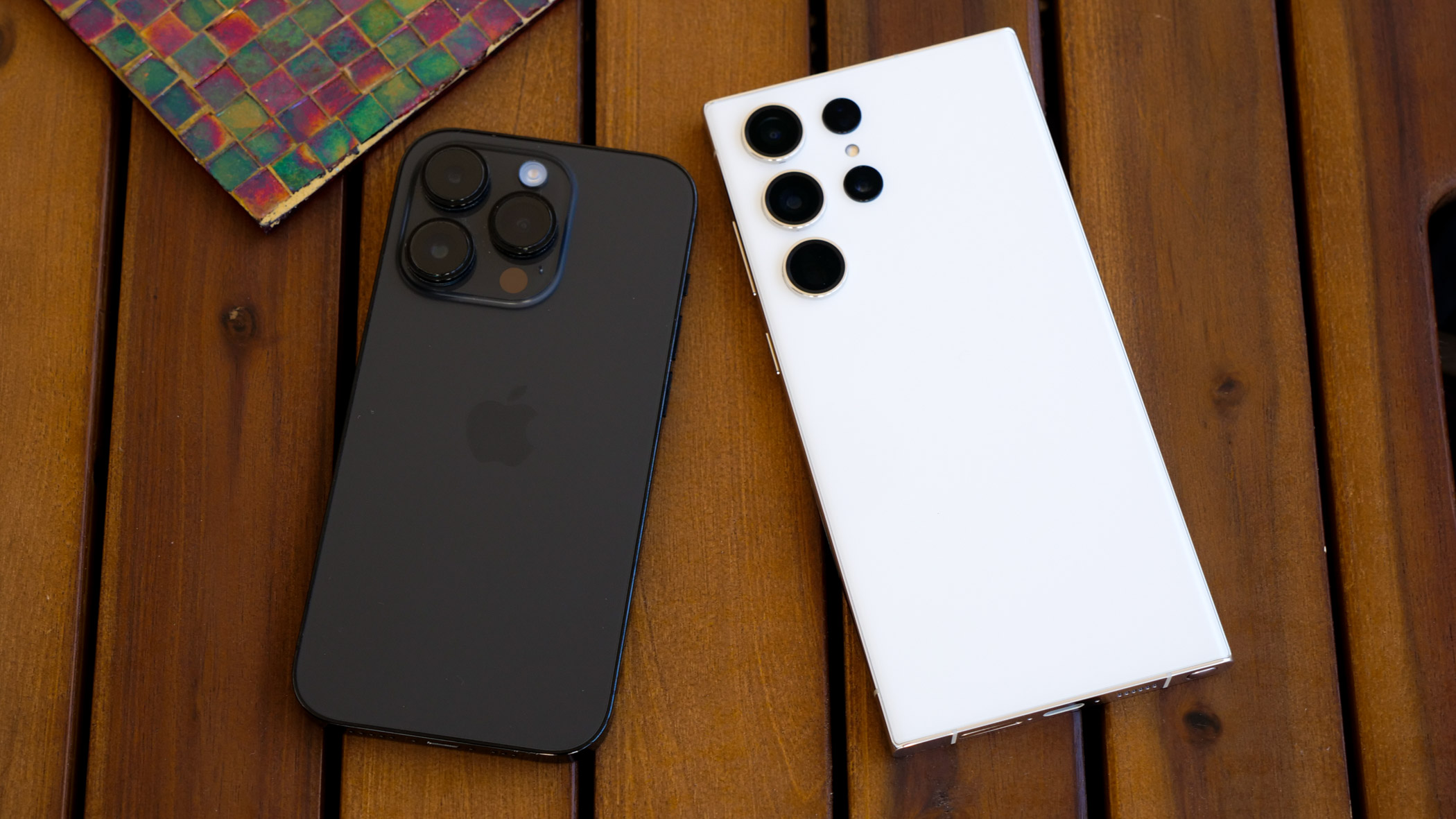
Final thoughts
I didn’t imagine that Google Bard was going to settle the age-old debate of iPhone vs. Android and despite choosing Android when it was put on the spot, it mostly played Switzerland in the debate.
I was impressed by some of its answers, particularly when it broke out a relatively basic question into a split structure that contained both an answer to my question along with added context. However, its factual errors and mix-and-match sourcing definitely hammered home that it can’t take the place of a human expert on these subjects.
As I said at the outset, this was just dipping my toe into Google Bard and AI chatbots, but stay tuned as I’ll be jumping into the deep end along with some of my colleagues to see how Google Bard and ChatGPT can be harnessed for productivity tasks, creative work, and more.







